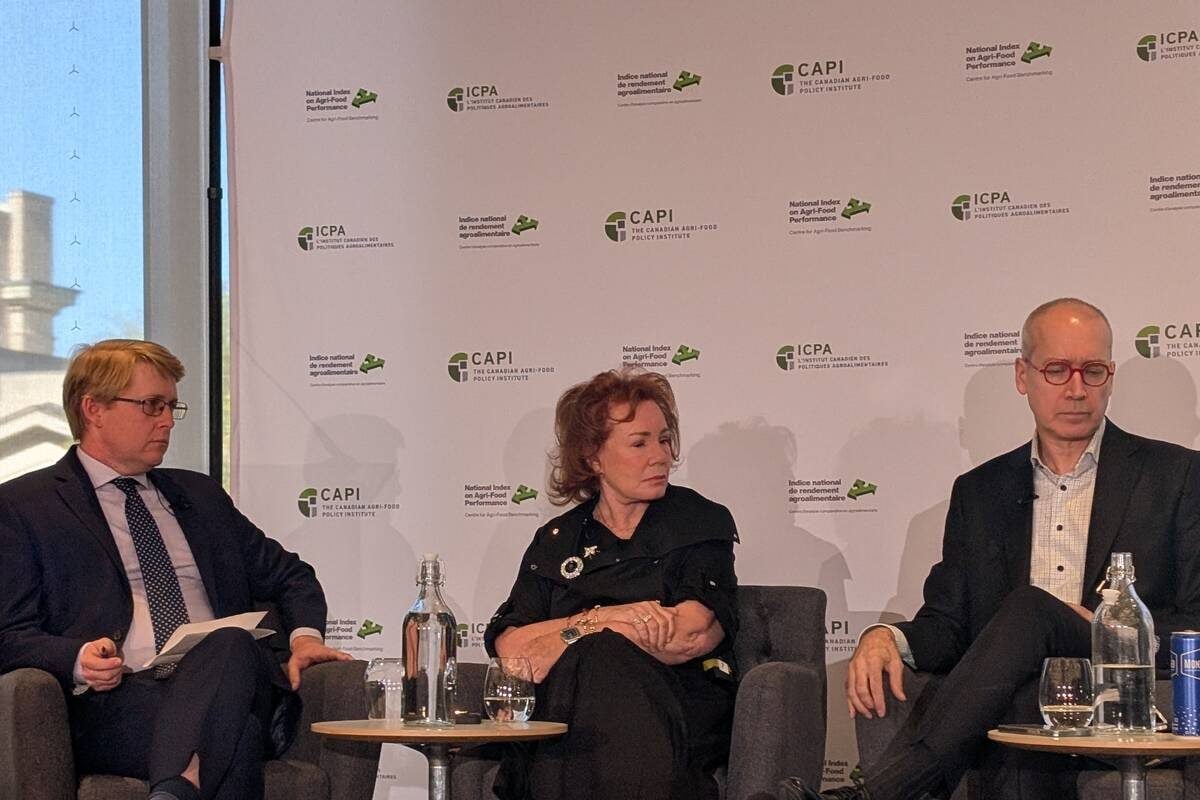The Alberta government has signed a memorandum of understanding with the province’s municipalities to have new governance rules in place by next year.
The agreement follows years of discussion about how to change the way municipalities are governed.
The Municipal Government Act is the framework that allows municipalities to operate.
“It’s the document we live and breath under as municipalities,” Al Kemmere, president of the Alberta Association of Municipal Districts and Counties, said during a news conference announcing the framework discussions.
“It is a key process to the future of municipalities.… Rural municipalities in Alberta are faced with unique challenges and we need a strong piece of legislation to provide the tools we need to grow and shape our communities.”
Read Also

Arlene Dickinson says recent trip to Asia opened her eyes to new trade opportunities
Arlene Dickinson says Canada must take up decades-old suggestions to support the agriculture and food sectors
It’s been more than 20 years since the act was changed, municipal affairs minister Diana McQueen said during the announcement.
Alberta’s population has increased to four million from 2.5 million in the early 1990s, which she said has increased pressure on rural municipalities, towns and cities.
“It only makes sense the municipal government act should change as we do,” she said.
“While the MOU doesn’t make any changes, it formalizes the process the parties will use to make changes.”
Discussions about changing the legislation began in 2012.
Municipalities are particularly concerned about a lack of sustainable funding to allow them to make plans.
Alberta premier Jim Prentice said money and taxation will be part of the discussion, but everything in the upcoming provincial budget will be looked at during tough economic times, including Municipal Sustainability Initiative grants on which municipalities rely.
“We are in a challenging fiscal environment in this province, but we are all in this together,” Prentice said.
“We need a stronger partnership between government and municipalities. We can’t expect, as a provincial government, to download those responsibilities onto municipalities without equipping them and working with them as a partner.”
Helen Rice, president of the Alberta Urban Municipalities Association, said establishing a framework agreement demonstrates a new relationship between the province and municipalities.
“With this government’s commitment to work together with municipalities, I am optimistic that we can create new legislation that enables municipalities to do their job.”
Kemmere said rural municipalities must look after an extensive network of roads and bridges with low populations. The act must be changed to allow municipalities to deal with rural issues without having to go cap in hand to the provincial government, he added.
“We need to have understanding where our revenue comes from.”
He hopes the new act will set out clear guidelines about funding, but it is also important to allow municipalities to make more decisions at a local level.
Rice said there have been no discussions yet on “clear, definitive funding formulas,” but they have identified areas where they are in agreement.
“It’s not all about money, but we are willing to assume added responsibilities as well,” she said.
“It has to do with an allocation of responsibility that allows us to be more efficient and more effective.”
Contact mary.macarthur@producer.com














